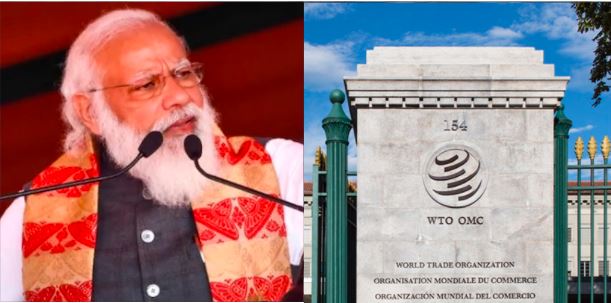In a step that would affirm India’s stance that the country is not interested in a kind of globalisation that benefits only a few countries, India is not participating under the Joint Statement Initiative (JSI) on e-commerce at WTO. “Our view is that JSI runs contrary to the exploratory and non- negotiating mandate of the ‘Work Programme on E-Commerce’,” Hardeep Singh Puri, minister of state for commerce and industry said.
The Biden administration, since it came to power, is trying to revive the WTO – which takes care of the interest of developed countries and China, while others like India are marginalised – in order to utilise it for the benefit of American companies like Amazon and Walmart.
However, India has maintained its stance and declined to participate in an event that has kept India’s interest out of its ambit. To quote a report of the Economic Times, “Puri said the issue of the Moratorium on duties on electronic transmissions is a key aspect of the e-commerce discussion. In March 2020, at the WTO, India and Africa had tabled a joint submission which brings out developing country concerns in this regard, including on retention of policy space for digital advancement.”
In the last few years, India has made efforts to ensure that countries like China do not enjoy unfair trade advantages with India in the name of globalisation. With WTO on its side, China has been able to increase the trade deficit with India by more than 50 billion dollars in the name of globalisation and free trade.
Previously, in a statement at the WTO, India had cautioned China that a huge trade gap needed to be bridged with positive actions. In its statement during China’s trade policy review, India had pointed out that China needed to make efforts to ease Indian exports to the nation. Rice, meat, pharmaceuticals, and IT products from India were the main subjects.
Globalisation, for which free trade is an important element, is on the decline. The rise of right-wing nationalist leaders like Donald Trump and Boris Johnson has disrupted the global order set up by multicultural elites.
Coronavirus outbreak will be the last nail in the coffin of globalisation and multi-culturalism. The post-corona world would have no place for free trade, and therefore countries like China, whose economy rose by exporting goods, will register a fall. The free trade of services, like software and cutting-edge technology, will continue, as these cannot be developed by the nation, thus, putting India at the advantage in such a system.
The coming decade will be driven by bilateral relations and trade. The multilateral trade deals, involving many countries or blocks are on the decline. Trump has already pulled out of the Transpacific Partnership Trade Deal and India pulled out of Regional Comprehensive Economic Partnership (RCEP).
But the countries are enthusiastic about bilateral trade deals if the leaders have good chemistry. For example, at the time of Trump, United States was enthusiastic about India-US free trade deal; similarly, Boris Johnson showed interest in pursuing FTA with India post-Brexit.
These trade deals, coupled with the decline of WTO which put all developing countries in one block, will give an advantage to India. Earlier India was among the developing countries along with China and therefore had not been able to get the advantage of its cheap labour, given the first-mover advantage of China.
